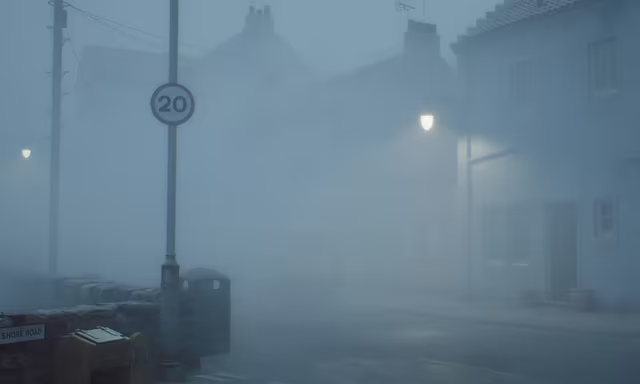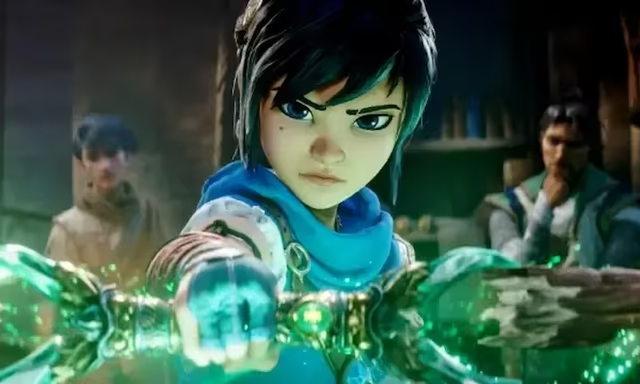If you click on a link and make a purchase we may receive a small commission. Read our editorial policy.
Mary Poppins rating upgraded as Disney faces the consequence of past actions (as Mary would surely approve of)
UK classification chiefs say that the 1964 Disney classic is no longer suitable for all audiences

Popverse's top stories
- Prime Video's Spider-Noir trailer is here, featuring a web-head with a drinking problem and... Electro?
- Daredevil: Born Again stars Charlie Cox, Krysten Ritter, and Wilson Bethel go from Hell's Kitchen to the Windy City for C2E2 2026!
- Marvel cuts its new Hulk ongoing comic after just 10 issues, but creators say that was the plan and there's already a sequel underway
When is a kids movie not a kids movie? When times change, and the window of what’s considered acceptable language changes with it, it appears, with the news that the British Board of Film Classification — the organizing body responsible for movie ratings in the United Kingdom — has upgraded the 1964 Disney movie Mary Poppins to a Parental Guidance rating after more than half a century being classified as suitable for all audiences.
Before the change, Mary Poppins was classified as U, which is defined by the BBFC as being “Universal - Suitable for all,” with the official description of the classification reading in part, “U films should be set within a positive framework and should offer reassuring counterbalances to any violence, threat or horror.” That certainly sounds like the popular musical in which Julie Andrews plays a benign magical nanny who changes the lives of small, impressionable kids Michael and Jane by bringing some excitement, joy, and love into their home again… so what made the change in classification necessary?
According to the BBFC, the reason is “discriminatory language,” with the Daily Mail reporting that one word is responsible: “hottentots,” a term that appears twice in the movie. The term was invented by Dutch settlers in Africa to describe the indigenous population, before later being used to describe all Black people; in the movie, it’s used in reference to chimney sweeps whose faced are blackened by soot.
While the idea of a Disney movie being upgraded in terms of classification years after the fact might initially seem surprising, it’s perhaps the obvious outgrowth of the recent trend of attaching warnings to archive material warning, as has been the case for some time now for Disney. Anyone watching mid-20th century movies like Dumbo, Peter Pan, The Aristocats, or even more recent fare like 1992’s Aladdin on Disney+ will see a disclaimer at the beginning noting that the subsequent movie includes “negative depictions” and “stereotypes” that “were wrong then, and are wrong now.” What the BBFC has done is, in effect, simply a variation on Disney’s own approach to their classic material.
It’s also worth pointing out that this isn’t the first movie that the BBFC has retroactively changed classification on; in 2022, both Watershed Down and Star Trek: The Motion Picture were similarly upgraded from U ratings to PG ratings, as a result of concern that both movies might be too violent for modern audiences. (Mild language concerns were also factors in both decisions, as well.)
What might be something to consider is that, rather than an outlier or a rarity, the re-classification of Mary Poppins is, in fact, the start of a trend in which the casual bigotry of kids’ entertainment gone-by begins to be addressed and acknowledged by external bodies — and where the sins of the past start to be treated seriously as a problem that can’t be solved with a slight “oops” disclaimer at the start of the show. What might be the real question is, when will other countries’ movie classification boards start to follow the BBFC’s lead on this matter?
Want to know what's coming up next in pop culture? Check out Popverse's guides to:
Follow Popverse for upcoming event coverage and news
Find out how we conduct our review by reading our review policy
Let Popverse be your tour guide through the wilderness of pop culture
Sign in and let us help you find your new favorite thing.
















Comments
Want to join the discussion? Please activate your account first.
Visit Reedpop ID if you need to resend the confirmation email.